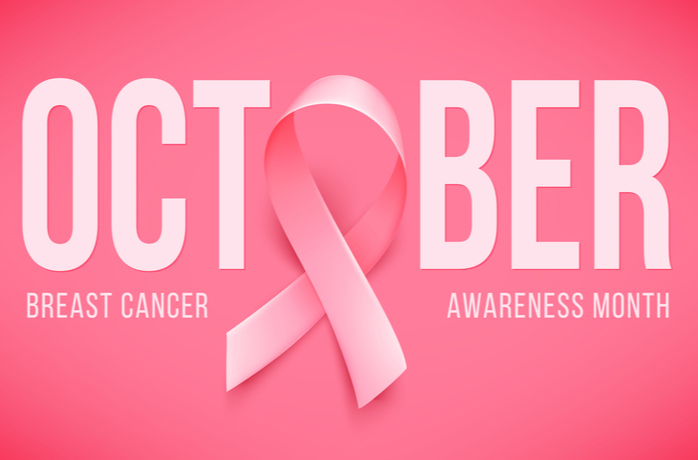
October is Breast Cancer Awareness Month, and while you may already know that mammograms save lives, there is growing evidence that this vital screening may not be enough for women at high risk for breast cancer or for some with dense breast tissue.
“Mammography is still considered the gold standard, but considering additional screening options is important in certain cases,” said Susan Ervine, MD, Holland Hospital Breast Care medical director. “For example, supplemental screening with breast MRI has been recommended for a long time for women with high risk of breast cancer, and now it’s even being recommended for some women with intermediate risk based on family history, dense breast tissue and other factors.”
Studies have suggested that MRIs (magnetic resonance imaging) may improve early detection of breast cancer in women at high risk or who have very dense breast tissue. Women with dense breasts have a higher risk of developing breast cancer, but because MRI can sometimes lead to additional testing or biopsies that may turn out to be noncancerous, it’s best to talk to your doctor first to decide if this screening is right for you.
FAQs About Breast MRI
For those looking to learn more about breast MRI, Dr. Ervine provides answers to common questions:
What is breast MRI?
Magnetic resonance imaging or MRI is a diagnostic test incorporating a combination of a large magnet, radio waves and a computer to produce detailed images of your body’s organs and structures. MRI doesn’t use radiation.
During a breast MRI, a woman usually lies face down with her breasts positioned through openings in the table. A breast MRI requires contrast dye which can help produce clearer images that define abnormalities more easily.
How can breast MRI be beneficial?
Recent research has found that MRI can locate some small breast lesions sometimes missed in a mammogram, as well as help detect breast cancer in women with breast implants and in younger women who have dense breast tissue.
What are the potential drawbacks of breast MRI?
Breast MRI isn’t always able to distinguish the difference between cancerous abnormalities. That means the test can sometimes lead to biopsies that turn out to be benign (not cancer). Breast MRI does not replace mammography, as it doesn’t always spot calcifications that may be associated with breast cancer. Calcifications are detected best by mammography.
When should breast MRI be considered?
According to the American Cancer Society, a woman should consider having a breast MRI with mammography if she:
- Has a BRCA1 or BRCA2 gene mutation
- Has a first-degree relative (mother, sister and/or daughter) with a BRCA1 or BRCA2 mutation
- Has a 20% to 25% or greater lifetime risk for breast cancer, based on family history and other factors
- Has had radiation treatment to the chest between ages 10 and 30, such as for treatment of Hodgkin disease
- Is of Ashkenazi Jewish descent
- Has a genetic disorder with an increased risk of breast cancer, such as Li-Fraumeni syndrome, Cowden syndrome or Bannayan-Riley-Ruvalcaba syndrome
- Has a close family member who have one of the above genetic conditions
Your health care provider may have other reasons to encourage scheduling a breast MRI. More recent studies indicate that screening with breast MRI is beneficial not only for women at high risk for breast cancer, but also for those with intermediate risk and dense breast tissue.
“Having dense breast tissue increases a woman’s risk of developing breast cancer. It can also make cancers difficult to detect on mammography, because both cancer and dense tissue appear white on a mammogram,” Dr. Ervine explained. “That’s why supplemental tests for breast cancer screening, such as 3D mammography [tomosynthesis] or MRI, may sometimes be advised. For example, women with a history of atypical cells on a breast biopsy, with dense breasts and a personal history of breast cancer, and with a family history of breast cancer in the absence of a known genetic mutation may also benefit from supplemental screening with breast MRI.”
The Bottom Line
Annual screening mammography is recommended for all women beginning at age 40. Because women with dense breasts have a higher than average risk of breast cancer, they may benefit from additional testing, such as breast MRI. However, it’s best to weigh the pros and cons of this test with your doctor.
Time for your annual mammogram? Call (616) 355-3865 to schedule. From education and early detection to advanced screenings and treatments to a specialized High Risk Breast Clinic, Holland Hospital is your lakeshore leader in breast care.